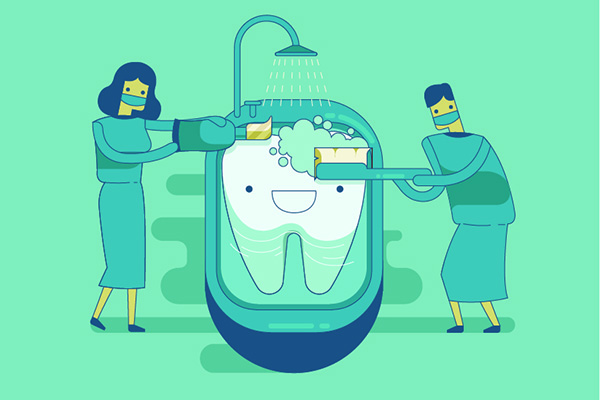 The primary focus of general dentistry is to help patients prevent oral health concerns from ever developing through regular cleaning visits and effective at-home oral hygiene. This article provides insights into how you can protect your teeth and gums through good oral hygiene practices at home between routine dental visits.
The primary focus of general dentistry is to help patients prevent oral health concerns from ever developing through regular cleaning visits and effective at-home oral hygiene. This article provides insights into how you can protect your teeth and gums through good oral hygiene practices at home between routine dental visits.
General dentistry tips for your oral hygiene
General dentistry visits are encouraged two to three times per year. This allows dentists to detect signs of oral health complications as early as possible and promptly treat them. However, effective oral hygiene also includes quality oral care practices between scheduled cleaning and check-up visits.
Keep your teeth clean
Tooth damage occurs when plaque and tartar that contain bacteria accumulate on the surface of teeth. The best defense against this is to keep teeth as clean as possible at all times. This should include brushing, flossing, and using mouthwash as directed by the general dentist and their staff. Most patients are encouraged to brush two to three times per day, floss after meals and snacks, and use mouthwash once each night before bed.
Take care of your periodontal health
Periodontal health (which refers to the health of the gums and jawbone) is essential as well. General dentistry practices recommend caring for periodontal health by brushing the gums (gently) several times per day, flossing to remove food and plaque along the gum line, and using an antibacterial mouthwash daily. Regular cleanings with a dentist can also help remove plaque and tartar along the gum line that could otherwise contribute to gum disease development.
Understand how diet affects oral health
Sugar and other refined carbohydrates can increase the risk of gum disease, cavities, and other oral hygiene concerns. It is best to monitor how much sugar is consumed and understand how it affects oral health, along with practicing good oral hygiene after a high-sugar meal, snack, or drink.
Visit the dentist for regular check-up visits
Regular check-up visits allow the general dentist to detect any issues with oral hygiene as soon as possible and provide restorative care if needed. Check-up visits also include a dental cleaning to remove plaque and tartar accumulation on teeth and along the gum line to further reduce the risk of future oral health concerns.
Take precautionary measures to avoid dental trauma
The risk of dental trauma can be reduced by wearing a mouthguard during situations where teeth are vulnerable to accidents. For people who grind their teeth at night, a condition that is known as bruxism, it is important to wear a nightguard. Those who are physically active or play a contact sport should also wear a mouthguard if a blow to the face is a possibility.
Ready to schedule an appointment?
You can keep your teeth and gums clean and healthy by scheduling a visit with our general dentistry practice for a check-up and dental cleaning. Call us or send our team a message today to schedule a convenient visit with our friendly team.
Request an appointment or call Eric A. Larson DDS at 801-871-8983 for an appointment in our Salt Lake City office.
Related Posts
Wondering how a damaged tooth can be treated? Read on to learn how general dentistry addresses damaged teeth. A damaged tooth can result from a blow to the mouth, bruxism, and a range of other causes. There are several ways a general dentist can restore the health, appearance, and function of a damaged tooth. This…
One of the more common concerns treated in general dentistry is a toothache. Treating toothaches involves determining the cause(s) of the toothache and treating the underlying concern because a toothache is generally a symptom of a more serious oral health issue.There are numerous ways a dentist can treat a toothache, and the most appropriate solution…
General dentistry focuses on keeping your teeth and gums healthy. Teeth cleanings are one of the staples of general dentistry, and the American Association of Dentists recommends getting them at least two times per year. The procedure protects teeth against tooth decay and gum disease.Tooth decay and gum disease are the top two reasons people…


